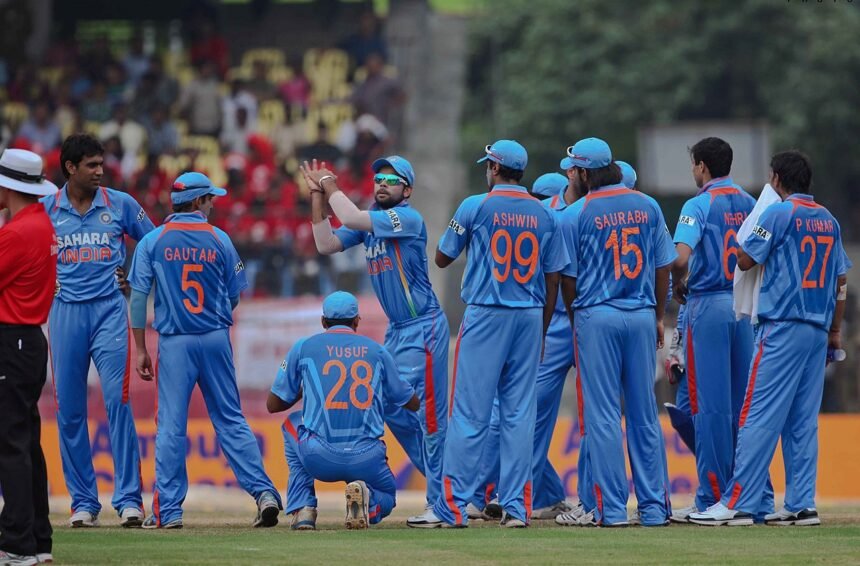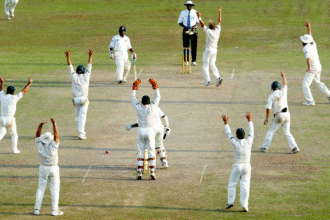Indian Cricket Team Jersey Number Meaning, Jersey numbers in cricket have evolved from simple identifiers to powerful symbols imbued with meaning, tradition, and identity. In Indian cricket, these numbers carry stories, cultural significance, player superstitions, and legacies that enrich the sports narrative. From iconic numbers worn by legends to the unique choices of emerging talents, understanding the meaning and history of Indian cricket team jersey numbers offers fans deeper insight into their favorite players and the game itself.
This article provides a detailed look at the history, symbolism, and cultural nuances behind the jersey numbers of the Indian cricket team, exploring how these numbers reflect personal and national pride.
Origins of Jersey Numbers in Indian Cricket
The practice of wearing jersey numbers gained prominence with the advent of limited-overs cricket in the 1970s and 1980s, when colored clothing replaced traditional whites. Numbering players’ shirts helped spectators and commentators identify players quickly, especially given the fast pace of these formats.
In India, jersey numbers became standard in international cricket in the 1990s and gradually extended to Test matches. As players donned numbers, personal preferences, numerology, astrology, and superstition began influencing their choices, leading to numbers acquiring unique meaning.
Iconic Indian Cricket Jersey Numbers and Their Players
Number 10 Sachin Tendulkar: Crickets Eternal Number
Sachin Tendulkar popularized jersey number 10, making it one of the most iconic numbers in cricket history. Originally wearing number 99 during the initial part of his career, Sachin Tendulkar switched to 10 based on numerological advice.
-
Cultural significance:The number 10 resonates with completion and perfection in many cultures.
-
Historical homage:The number became legacy intertwined with Tendulkars records and impact.
-
BCCI action:The cricket board retired number 10 in 2017 to honor Tendulkar, ensuring no other player wears it in international cricket.
Number 7 MS Dhoni: The Lucky Leadership Number
MS Dhonis number 7 reflects his birthdate (7th July) and his lucky charm. This number became synonymous with his legendary composure and match-finishing abilities.
-
Symbol of leadership:Dhonis 7 jersey evokes memories of his captaincy and calmness under pressure.
-
Fan culture:The number 7 is one of the most popular in Indian cricket jersey sales.
Number 18 Virat Kohli: Personal and Passionate
Virat Kohlis choice of number 18 carries personal significance as a tribute to his late father, who died on the 18th. This number now symbolizes Kohlis relentless dedication and aggressive approach.
-
Impact on fans:Number 18 jerseys are highly sought after globally.
-
Legacy-building:Kohlis performances have deepened its association with excellence.
Number 45 Rohit Sharma: The Elegant Power
Rohit Sharmas number 45 is recognized for blending elegance with power-hitting. Though unconventional compared to single-digit numbers, 45 has become a brand number associated with his style.
Other Notable Indian Jersey Numbers with Historical Relevance
-
Number 4 Rahul Dravid:The Wall wore number 4, symbolizing dependability and strength.
-
Number 11 Mohammed Shami:A fearsome fast bowler with lethal yorkers.
-
Number 33 Hardik Pandya:The flamboyant all-rounders number representing versatility.
-
Number 17 Rishabh Pant:Young and aggressive wicketkeeper-batsman carrying the future.
Cultural and Numerological Factors Influencing Jersey Numbers
In India, numerology and astrology hold significant cultural sway. Many players select numbers based on their date of birth or numerological compatibility. For example:
-
Ravindra Jadeja wears number 8, considered auspicious.
-
Some players switch numbers mid-career seeking better fortunes.
This cultural aspect adds a mystical dimension to jersey numbers.
Jersey Number Changes: Reasons and Impact
Players may change numbers for various reasons:
-
Superstition or belief:To change luck or mark a fresh start.
-
Team dynamics:Number availability or senior players joining/leaving.
-
Personal milestones:Post significant life events.
Famous changes like Tendulkars shift from 99 to 10 showcase how numbers evolve with personal growth.
Jersey Numbers Role in Fan Engagement and Merchandise
Indian Cricket Team Jersey Number Meaning, Jersey numbers are central to fan identity. Supporters often buy replica jerseys bearing favorite players numbers to express loyalty. Cricket boards and brands maximize this through marketing campaigns, memorabilia, and endorsements.
In India, popular jersey numbers fuel merchandise sales, making numbers vital commercial assets besides sporting icons.
Jersey Numbers and Indian Premier League (IPL)
The IPL has magnified jersey numbers visibility and importance, with players choosing distinctive numbers for branding and superstition. Numbers become part of IPL personas, contributing to wider global recognition.
Official Sources for Jersey Number Verification
For fans seeking authoritative and updated details about Indian cricket players jersey numbers, the Board of Control for Cricket in Indias official website is the primary resource:
BCCI Player Profiles and Jersey Numbers
The website keeps current listings and player details across formats.
Read More: Unveiling the Indian Cricketer Wearing Jersey Number 77: Insights and Profile
Conclusion
Indian Cricket Team Jersey Number Meaning, The jersey numbers of Indian cricket players tell stories far beyond numeric identification. They embed personal beliefs, cultural values, and sporting legacies. From the immortal number 10 of Sachin Tendulkar to the emotionally charged 18 of Virat Kohli and the strategic 7 of MS Dhoni, these numbers resonate with millions.
Understanding the history and meaning of jersey numbers enhances the cricketing experience, forging deeper connections between players and fans. As Indian cricket marches forward in 2025 and beyond, jersey numbers will remain enduring symbols of pride, passion, and excellence.






